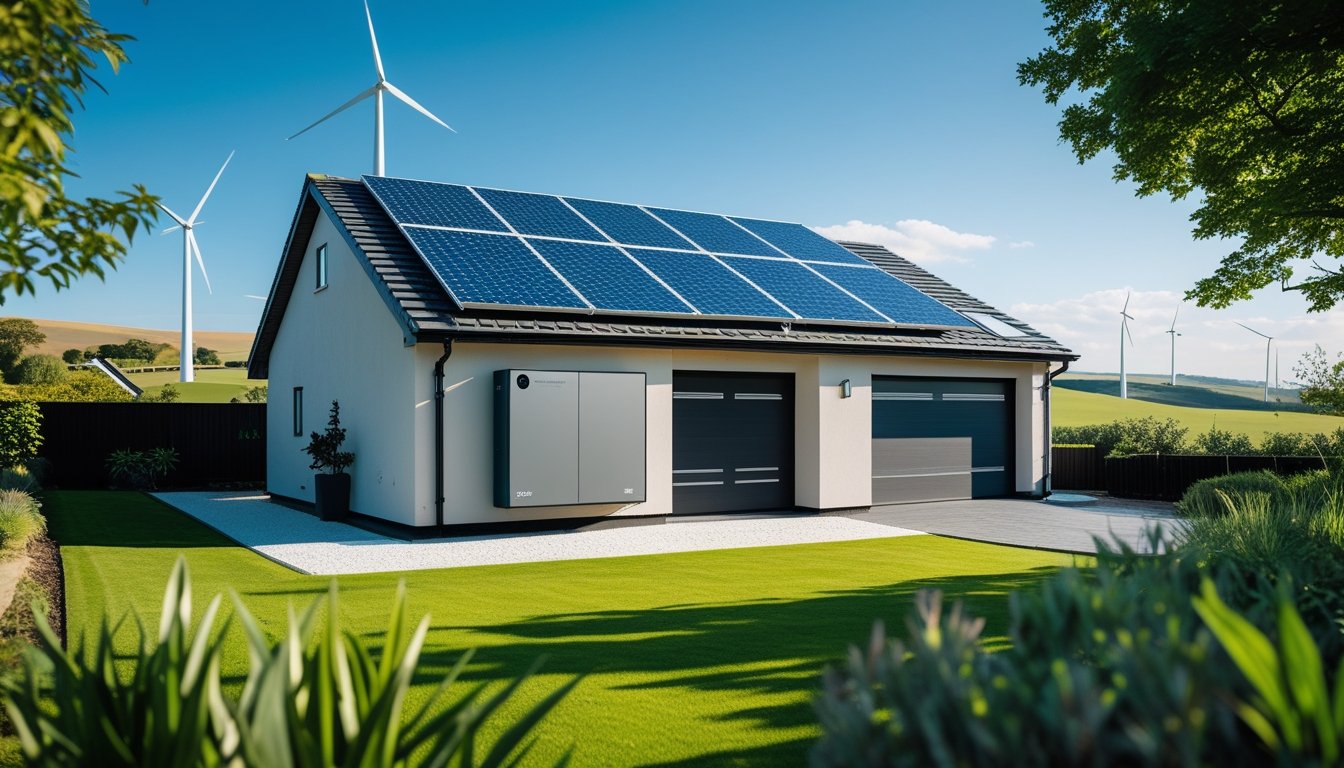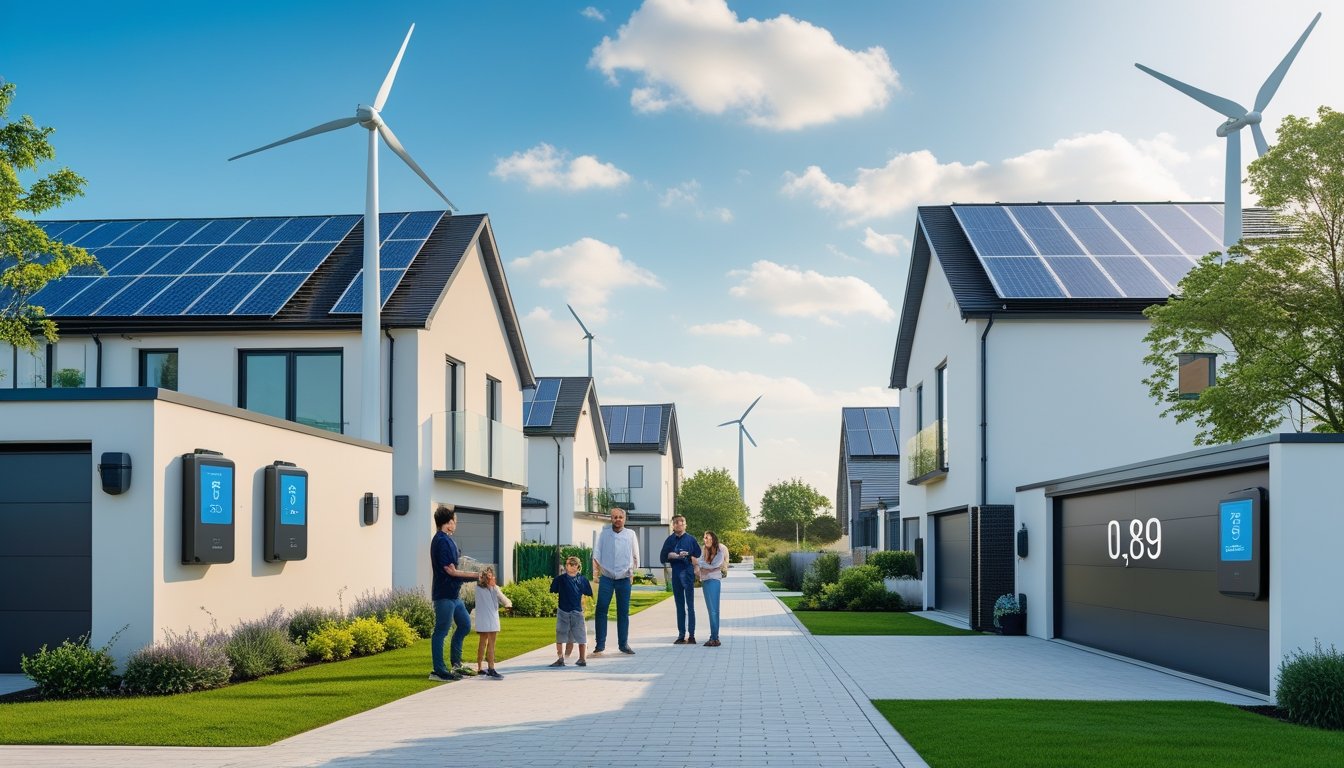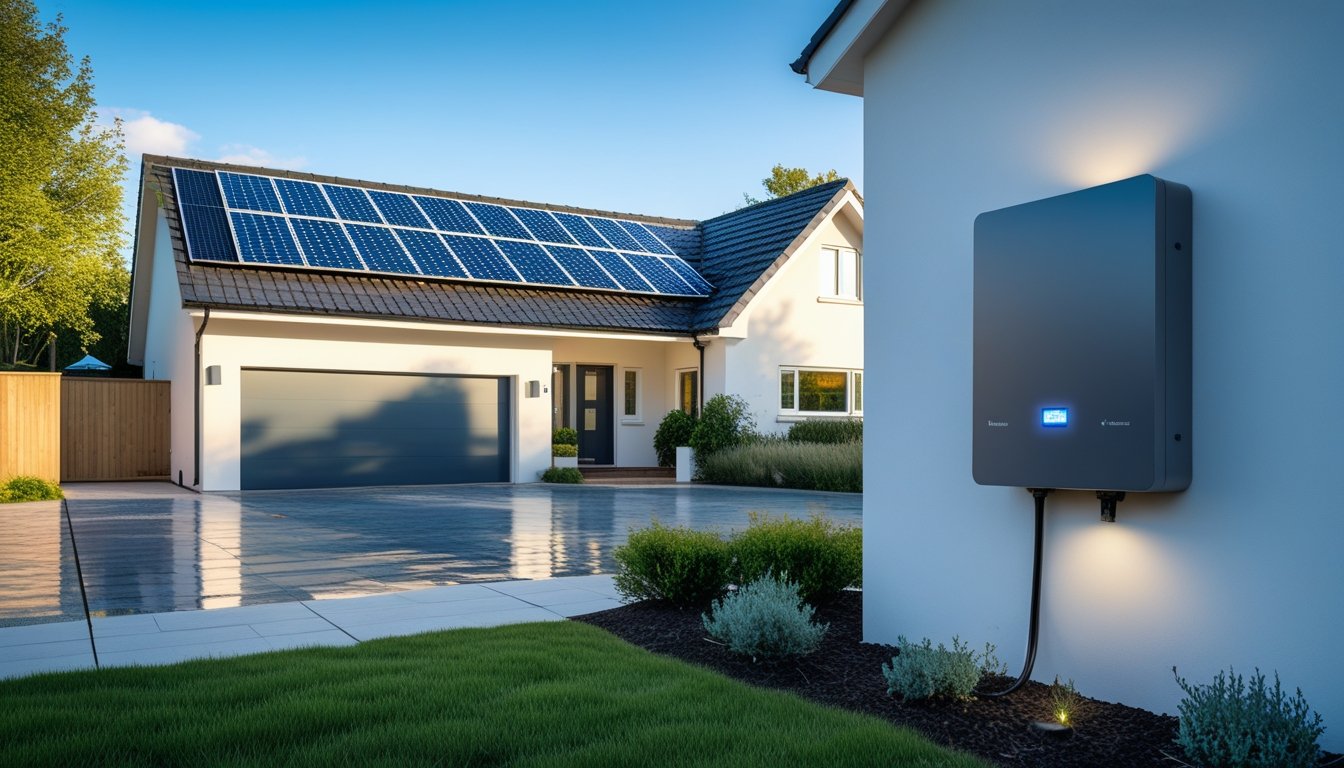Late updated: 20 Sep 2025 10:09
Written by: Oliver Bennett
Renewable Energy Storage Solutions For UK Homes: Advancements And Options
Embracing renewable energy storage solutions in our homes is more than a trend—it's a necessity. With the UK's push towards sustainability and the rising cost of electricity, the benefits are clear. Homeowners can reduce their electricity bills by up to 60% with the right energy storage systems. This opportunity also offers a way to decrease our reliance on the grid and bolster our energy independence, essential in today's fluctuating energy market.

The current landscape in the UK favours the adoption of renewable solutions. With growing government support and advances in battery technology, energy storage systems are becoming more efficient and accessible. Installing these systems allows us to harness solar and wind energy effectively, ensuring a steady power supply even when natural sources are unavailable.
This post will guide us through the core solutions available and offer insights into maximising efficiency and sustainability in UK homes. By exploring these cutting-edge technologies, we can make informed decisions that benefit both our households and the environment.
Key Takeaways
- Home energy storage reduces electricity bills and increases independence.
- Government incentives and tech advances support adoption.
- Efficient storage maximises renewable energy use.
Core Solutions for Renewable Energy Storage in UK Homes
In the UK, renewable energy storage solutions such as integrating batteries with solar panels and utilising electric vehicle (EV) charging systems are driving the home's energy revolution. By adopting these solutions, we can reduce reliance on the grid, enhance energy efficiency, and effectively harness sustainable energy resources.
Types of Home Energy Storage Systems
In our pursuit of cleaner energy solutions, battery storage has become a critical component. Home energy storage systems typically rely on lithium-ion batteries due to their high efficiency and long lifespan.
Lead-acid batteries are another option but are less popular because of their lower energy density. For those seeking advanced options, flow batteries offer scalable storage capacity, although they tend to have higher upfront costs. These systems enable us to store excess energy generated by our renewable sources and use it during periods of low generation or high demand, maximising the utility of our installations.
Solar Panels and Battery Integration
Solar panels are a common renewable energy source in UK homes, greatly enhancing their utility with battery integration. By combining solar systems with battery storage, we can store excess daytime energy for use during the night or on cloudy days.
This maximisation of solar energy allows us to significantly cut our electricity bills and ensures a more stable power supply. Inverter systems play a pivotal role in energy conversion, allowing for seamless integration with home electrical systems. By intelligently managing our solar production and storage, we can optimise self-consumption and lessen dependency on the national grid.
EV Charging Solutions for Domestic Use
The growing popularity of electric vehicles (EVs) necessitates effective charging solutions within homes. Installing an EV charging station at home is not only convenient but also complements our energy storage efforts. By strategically using stored energy from home systems, we can charge EVs during off-peak hours, reducing energy costs.
Some advanced smart charging systems can adjust for real-time electricity pricing, enabling us to leverage cheaper tariffs effectively. This solution not only mitigates the impact on the grid but also supports the broader goal of achieving a carbon-neutral footprint by fostering renewable energy utilisation in our transportation choices.
Maximising Efficiency and Sustainability

Implementing renewable energy storage in UK homes offers significant advantages, improving both efficiency and sustainability. By integrating effective energy storage solutions, households can optimise energy usage and reduce reliance on the grid, while supporting clean energy initiatives.
Designing an Effective Home Energy Storage Setup
Crafting a home energy storage system begins with understanding our needs and available resources. Essential components include solar panels, battery storage systems, and smart management technologies.
Choosing the right battery capacity depends on household energy consumption patterns. Lithium-ion batteries are popular due to their high efficiency and long lifespan.
Smart metering systems facilitate optimal energy use, giving us control to schedule appliance usage during high solar energy production. Regular maintenance ensures continued performance and longevity, maximising both efficiency and sustainability over time.
Grid Independence and Energy Security
Achieving grid independence enhances our energy security, reducing susceptibility to power outages. By storing excess energy, we can operate autonomously even during grid failures.
This independence allows us to reduce energy bills by using stored energy during peak pricing periods. Monitoring fuel consumption helps us make informed decisions, optimising usage without sacrificing comfort.
Moreover, hybrid systems that combine solar power with battery storage offer reliability, ensuring a consistent energy supply by balancing intermittent renewable input with demand.
Sustainability and Clean Energy Benefits
Transitioning to renewable energy storage contributes significantly to sustainability initiatives. By decreasing our dependence on fossil fuels, we cut down on carbon emissions, aiding efforts to combat climate change.
Integrating clean energy solutions into our daily lives makes households active participants in the renewable energy movement. Each kilowatt-hour of renewable energy displaces fossil fuel generation, helping to reduce pollution.
Government incentives and programmes often support these initiatives, making it more feasible for us to invest in sustainable solutions. By committing to renewable energy storage, we take a crucial step towards a cleaner, more resilient future.
Frequently Asked Questions

In our exploration of renewable energy storage for UK homes, we address various aspects from integration with existing systems to financial incentives. Our discussion covers popular storage technologies, their benefits, climate impacts, and safety considerations, providing a comprehensive guide for homeowners.
What are the leading technologies available for storing renewable energy in domestic environments?
Homeowners in the UK have several efficient options for storing renewable energy. Battery storage systems, like lithium-ion batteries, are widely used. Thermal storage systems, which store energy as heat, are also popular. Each type offers unique benefits, such as reducing reliance on grid electricity and enhancing energy independence.
How do home battery storage systems integrate with solar panels for household use?
Integration between solar panels and home battery systems is seamless. Excess solar energy generated during the day can be stored in batteries for later use, reducing the need for grid electricity. This system is particularly beneficial during peak evening hours, ensuring that solar energy is readily available when needed.
Can you detail the benefits and limitations of using thermal storage systems in residences?
Thermal storage systems capture and store heat, which can later be used for heating water or indoor spaces. Benefits include energy efficiency and reduced utility bills. However, the installation can be more complex, and the efficiency may vary based on weather conditions. Proper sizing and placement are crucial for optimal performance.
What are the financial incentives for installing renewable energy storage solutions in UK homes?
The UK government offers financial incentives to encourage renewable energy storage adoption. Such incentives may include grants, tax breaks, or tariff benefits. Homeowners can benefit from initiatives like the Smart Export Guarantee, which pays for excess energy fed back into the grid. Accurate information regarding eligibility and available schemes is essential.
How do the UK's climate and weather patterns affect the efficiency of home renewable energy storage systems?
The UK's varied climate impacts the performance of renewable energy storage. Solar power availability depends on sunlight, which varies by season. Wind energy can be more consistent. Systems need to be adaptable to these variations to maximise efficiency. Consistent monitoring and maintenance can help optimise performance despite weather changes.
What safety considerations should homeowners be aware of when implementing energy storage solutions?
Safety is paramount when installing energy storage systems. Homeowners should ensure systems meet regulatory standards and are installed by certified professionals. Regular maintenance checks are vital. Proper ventilation and fire safety measures must be considered, especially with batteries, to prevent hazards. Awareness of these factors can ensure safe and efficient operation.
